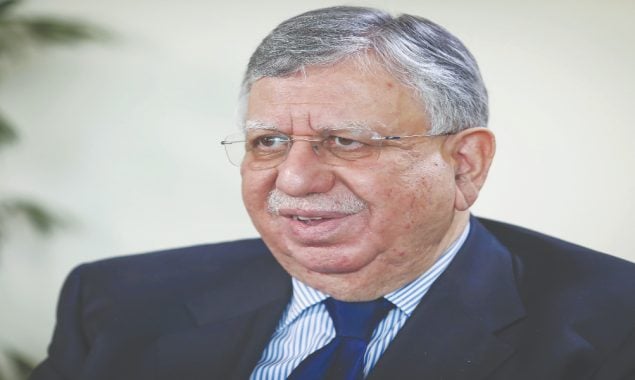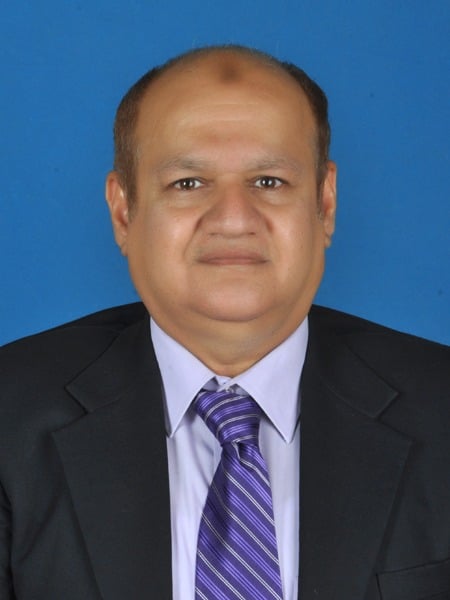Synopsis
Costly petroleum to raise prices of all items by at least 15%

ISLAMABAD: A massive increase of Rs12/litre in the petrol prices came as a big shock for van driver Atiq Khan, who provides pick-and-drop service to school children.
Atiq Khan said that he had increased the transportation charges last month, but the recent hike in petrol prices have made things much more difficult for him.
“Last month, I raised the transportation fee by Rs500/child, but even for that I faced resistance from parents and now I don’t know how to convince them again for another increase,” he said.
Atiq mainly provides pick-and-drop service to the students of middle and lower middle classes. Owing to inflationary pressure some of his clients are now using Bykea, a motorcycle service, to pick and drop their children.
“The parents understand that sending children on a bike is a bit risky but they don’t have any other option and we can’t blame them for abandoning our services,” Atiq said.
Karachi Retail Grocers Group (KRGG) General Secretary Farid Qureshi said that the recent hike in the petroleum prices will increase the prices of all items by around 15 per cent.
“The average transportation cost of a 40kg packed item is likely to go up by Rs50 and accordingly the wages of loaders will also rise,” he said, adding that the local and multinational companies had, in the recent past, raised the prices of packed items.
The edible oil manufacturers and the flour mills are also pondering over increasing the prices as the import of raw material is denting their businesses, he said.
It has been observed that the edible oil companies are buying substandard Iranian cooking oil from the market, which is being smuggled into the country to meet their requirements.
“The cost of Iranian oil is Rs200/kg but they [edible oil companies] are selling it at Rs350/kg and even indicated to further increase it by Rs50/kg due to high petrol prices,” he added.
The flour mills are also demanding the government to increase the prices of flour.
Former vice-president of KCCI and commodities expert Shamsul Islam said that in developed countries, prices are determined by demand and supply, but in Pakistan, because of poor administration and weak governance, mafias in different sectors manipulate the prices.
“Despite an increase of 6 to 7 per cent in diesel prices, the transporters may increase the fare by 10 to 12 per cent and, unfortunately, no one in the federal or provincial governments can keep a check on it,” Islam said.
The government along with all the regulators and business community determined the inland freight so no one will manipulate the fares, he said.
“One has to understand that in many countries production remained at a standstill because of the Covid-19 pandemic but now it is picking up,” he said. For Islam, there is a huge demand for crude oil from the countries such as China and India.
Despite Prime Minister Imran Khan’s initial reluctance to increase the petroleum prices, the government compelled to increase the rates by Rs10 to Rs12/litre for the next fortnight, ending on February 28, to pass on the impact of higher international oil prices and application of additional petroleum levy, as committed to the International Monetary Fund.
In a tweet, Finance Minister Shaukat Tarin said that owing to higher international oil prices, Pakistan is suffering huge losses in terms of revenue from the sales tax and petroleum levy.
“Following the 166 per cent increase in the international petroleum prices since November 2020, the government is continuously losing its revenue generated from the sales tax and petroleum levy, just to protect the common man from higher prices. In FY22 alone, the government lost Rs70 billion/month and Rs840 billion for the full-year,” he added.
These are the highest-ever prices of all the products and also perhaps the highest-ever increase in their prices in one go.
The Ministry of Finance announced the decision after convincing the prime minister to raise petroleum levy on all products by Rs4/litre to honour the commitment made with the IMF. However, the general sales tax (GST) rate on all these products was kept unchanged at zero.
The benchmark crude prices are hovering above $100/barrel in the international market.
A statement issued by the authorities said the premier had approved the recommendation to increase the prices of petroleum products in line with the change in the international oil prices.
According to a notification issued by the Ministry of Finance, the ex-depot price of petrol was fixed at Rs159.86, compared with Rs147.83/litre, up Rs12.03/litre, or 8.14 per cent. The petroleum levy on petrol was increased from Rs13.92 to Rs17.92/litre. The government is also charging around Rs12/litre on petrol as the Customs duty.
The ex-depot price of high-speed diesel (HSD) was raised to Rs154.15/litre from Rs144.62, showing a rise of Rs9.53/litre or 6.6 per cent. The petroleum levy on HSD was increased to Rs13.30/litre from Rs9.30 in addition to Rs12/litre Customs duty.
The ex-depot price of kerosene was raised to Rs126.56/litre from Rs116.48, up Rs10.08 or 8.65 per cent. The petroleum levy on kerosene was increased to Rs5/litre from Re1.
The ex-depot price of light-diesel oil (LDO) also jacked up to Rs123.97 from Rs114.54, registering an increase of Rs9.43 or 8.23 per cent. The petroleum levy on LDO was raised to Rs9.50/litre from Rs5.50.
All jet fuel prices were also increased. The price of JP-1 was raised Rs11/litre to Rs140.65, while JP-8 price increased Rs7/litre to Rs135.72. The E-10 fuel (ethanol petrol) also increased over Rs10/litre to Rs157.35. These three products also contain 17 per cent GST but no petroleum levy.
Announcing the price hike, the Finance Ministry said the prices of petroleum products were showing drastic increase in the international market and were at the highest level since 2014 when the crude oil touched $105/barrel.
Interestingly, the domestic prices of petrol and HSD in 2014 hovered between Rs110 and Rs120/litre.
Pakistan Kuwait Investment Company Head of Research Samiullah Tariq said that this time petroleum prices reached an all-time high because of massive rupee depreciation.
The weightage of petroleum production in the Consumer Price Index (CPI), which is a benchmark inflation, is 4 per cent.
“Alone, this recent hike will add 0.4 per cent inflation in CPI but if you look the side-effects of it then it is very high because everything will be impacted with an increase in the transportation cost,” he said.
Oil Tankers Association General Secretary Nauman Butt said that they have also demanded a rise in their fares from the Oil and Gas Regulatory Authority (Ogra) and Pakistan State Oil (PSO).
“Oil tanker owners have already established a protest camp at PSO head office in Karachi.” He, however, refused to quantify the increase they demanded from the two organisations.
“Since the talks with the authorities are in final stages, we don’t want to send any wrong message or disturb the momentum of talks, but once things are finalised, we’ll definitely share details with the media,” he added.
The prime minister had deferred price review on January 31 and provided relief to the consumers through reduced GST and PDL and was bearing around Rs35 billion fortnightly revenue loss, he said.
At present, the GST is zero on all the key products, including petrol, HSD, kerosene and LDO against 17 per cent normal GST. The government is charging a petroleum levy of Rs17.92/litre on petrol, Rs13.30 on HSD, Rs9.50 on LDO, Rs5 on kerosene and Rs30/litre on high octane blending components. The government is also charging around Rs12/litre Customs duty on petrol and HSD.
Pakistan’s oil import bill hit a record high of $11.69 billion in the first seven months (July-January) of the current fiscal year 2021/22, mainly due to a surge in the energy prices in the global market and partly due to a pickup in the demand.
The price of Arab Light Oil, which Pakistan imports mostly from the Middle Eastern countries, surged 74 per cent year-on-year during the period under review.
The volumetric demand for petroleum products increased 25 per cent in Pakistan. Accordingly, the share of energy in the country’s total import bill surged to 25 per cent during July-January FY22, compared with less than 20 per cent in the same period of the last fiscal year 2020/21.
Read More News On
Catch all the Business News, Breaking News Event and Latest News Updates on The BOL News
Download The BOL News App to get the Daily News Update & Follow us on Google News.




